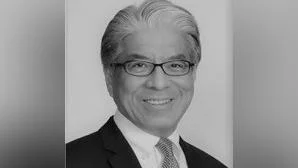Masato Miyachi Director | Morgan Stanley
Morgan Stanley at Work has released findings from its fifth annual State of the Workplace Financial Benefits Study, focusing on equity compensation. The study examines how employees and HR executives in the U.S. perceive equity compensation amidst economic uncertainty.
The data indicates that employees are increasingly viewing equity compensation as a significant motivator and financial stabilizer, aligning their interests with those of their companies. HR leaders also recognize the importance of equity as a tool for talent management but note gaps in education and engagement opportunities.
Key insights from the study reveal that despite market volatility, HR leaders see long-term value in equity compensation. They believe it helps employees achieve long-term investing goals like retirement. In private companies, 67% of employees and 88% of HR leaders emphasize the importance of future liquidity events or IPOs.
Almost half (48%) of employees agree that equity is an effective motivator and wealth generator. They cite benefits such as having a stake in company success (28%), meeting long-term investing goals (23%), and providing additional income (22%).
"Equity compensation is understood as a strategic necessity not just for executives but across all levels of the organization," said Craig Rubino, Head of Corporate Relationship Management and Engagement at Morgan Stanley at Work. He emphasized the need to enhance education, support, and access to leverage this tool effectively.
The study also highlights opportunities to improve engagement with equity programs. A significant majority (84%) of employees express interest in receiving equity compensation, while over a third (34%) seek more support to maximize these benefits. Nearly half (49%) of HR leaders concur with this need for enhanced guidance.
There is a perception gap regarding the effectiveness of equity education programs; 36% of employees versus 43% of HR leaders find them very effective. This underscores an ongoing need for better integration into comprehensive financial strategies.
"In today’s market uncertainty, we’re seeing that employees increasingly see equity compensation as a powerful force," said Kate Winget, Chief Revenue Officer at Morgan Stanley at Work.
Further details can be found in Morgan Stanley at Work’s State of the Workplace Study. The business will release additional findings on financial benefits and retirement benefits soon.
The survey was conducted by Wakefield Research among 1,000 U.S.-employed adults and 600 HR leaders.
Morgan Stanley at Work offers workplace financial benefits aimed at building financial confidence and loyalty through solutions including Equity, Retirement, Deferred Compensation, Executive Services, Saving and Giving solutions along with Financial Wellness programs.
Morgan Stanley Wealth Management provides diverse financial services globally through its offices in 42 countries.

